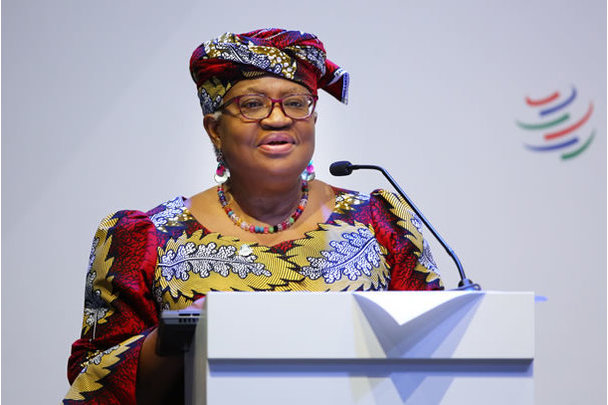World Trade Organisation (WTO) Director-General, Dr. Ngozi Okonjo-Iweala, has called for urgent action to reduce Africa’s $100 billion yearly food import bill and to redirect the continent’s vast pension fund assets into infrastructure and productive sectors.
She said Africa must rethink its development strategy to build resilience, create jobs, and integrate more deeply into global trade.
Speaking virtually at the annual conference of the Nigerian Economic Society (NES) in Abuja, Okonjo-Iweala said Africa’s dependence on food imports was unsustainable despite its immense agricultural potential.
The continent, which holds around 60 per cent of the world’s uncultivated arable land, still relies heavily on imports for staples such as wheat, rice, and dairy products, draining scarce foreign exchange and exposing economies to global price shocks.
She argued that Africa needed to overhaul its food systems, modernise farming practices, and develop local processing industries to strengthen self-sufficiency.
According to her, reversing the food import trend would free up resources for other priorities and employ millions of young people entering the labour market each year.
Beyond agriculture, Okonjo-Iweala emphasised the importance of mobilising domestic resources to finance Africa’s development agenda.
She said African pension funds manage more than $250 billion in assets, most of which are invested in low-risk instruments with limited impact on economic growth.
She urged policymakers to create frameworks that would safely channel part of this capital into infrastructure projects such as roads, power, and railways, which are crucial for unlocking private investment and enhancing competitiveness.
The WTO chief noted that reliance on foreign aid and concessional finance was becoming less viable. Global official development assistance has been declining, she said, with Africa’s share falling by double digits over the past decade as traditional donors redirected resources to domestic priorities, including refugee resettlement and defence spending.
She warned that the changing global economic landscape, marked by trade tensions, protectionism, and slowing growth, leaves African economies more vulnerable to external shocks.
This, she said, made it imperative for countries to strengthen their internal economic engines and make better use of regional integration platforms such as the African Continental Free Trade Area (AfCFTA).
Okonjo-Iweala observed that Africa still accounted for less than three per cent of global goods trade, with Nigeria contributing less than a quarter of one per cent in 2024.
She argued that African countries must shift from being marginal players in the global economy to becoming active participants by building competitive industries and plugging into global value chains.
The WTO, she added, is working to support African countries in these efforts by promoting trade facilitation, addressing barriers to market access, and helping countries benefit from digital trade opportunities.
But she insisted that much of the responsibility lies with domestic policymakers to create enabling environments, improve governance, and build investor confidence.







